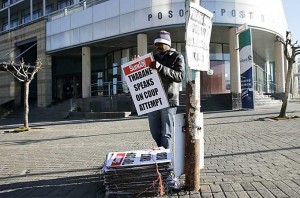The terms, colonization, is originally derived from the latin ‘colere’ signifying to ‘ to inhabit, cultivate, protect’ another group of humans, thus to colonize would naturally signify to guard another people.
As a matter of fact, only a few countries in early and modern history such as Japan, Thailand, Iran, Liberia and Korea amongst a dozen have never been fully colonized at any point in their history.

The Great United States, “Land of the Free and Home of the Brave” was once under the rule of other nations. Having begun in 1492 with a Spanish expedition, directed by Christopher Columbus, the colonization of the Americas lasted until late 1700’s. During that time frame, European, more specifically British settlers made several attempts to colonize the Eastern coast of the “New World” we now know as the US.
As the United States gained their freedom from the hands of the Europeans, many countries across the globe were experiencing the same fate post Slave Trade. In 1884-1886, the “scramble for Africa”, or the ‘”conquest of Africa” emerged as the timeframe where European settlers truly established themselves as strict colonists within the African continent. Within the space of 20 years, 90 percent of Africa became occupied.
At the time, the Kingdom of Buganda was one of the major political structures in the area we now know as Uganda. Although the presence of Arab traders seeking ivory and slaves had been in the region prior to the Europeans, notably the British invasion, it was not until 1888 that the English reluctantly considered East Africa and more specifically thus the Bugandan region as a colonial interest.
In 1894 The Brtish government declared a protectorate over Bugandan, separating numerous ethnic groups, especially the Bantu in the south from the Acholi and Langi in the North. In 1895, it associates Kenya forming the East Africa Protectorate.
WWII became a turning point for the invisibility of the European colonists. As Britain dwelled in bankruptcy, African nationalism emerged and the Ugandan population straightened in political power. Having exposed many civilians through military travels abroad, young educated Ugandans and the Bugandan kingdom hunted for the freedom of their people.
In 1962, Uganda was granted autonomy. Ugandan politician Milton Obote, founder of the Uganda’s People Congress, becomes prime Minister and negotiates the official terms of the Constitution when the nation becomes fully independent in October 1962.
Both The United States and Uganda have experienced England take control of their land, labour and livelihood.
However past evidence shows that the level of severity and inhumane actions against Ugandans were absolutely dispicable.
In a recent article from the Guardian, it was shown that “thousands of documents detailing some of the most shameful acts and crimes committed during the final years of the British empire were systematically destroyed to prevent them falling into the hands of post-independence governments.”
The notes included multiple genocides, purges and other abominable acts against the colonized societies, including Uganda. It was believed the genocide of Bunyoro reduced a 2.5 million population to a mere 150,000 Ugandan.
Even though colonization is no longer, England unquestionably left an indelible mark on it’s colonies.
The United States became the single most ruthless nation to participate in the human slave trade, leading to decades and generations of imported black slaves. It was only in the middle of the 20th century, with the Civil Rights Movement, that racial equality emerged.
As for Uganda, Britain turned into its’ “motherland”. From the English language and customs to their clothing and culture, Ugandans were brainwashed with the idea of a utopian British lifestyle. Moreover, It’s swift euphoric moment of independence only marked the beginning of a long chain of civil wars. British powered warlords such as Idi Amin, led the country into a full decade of absolute terror and a significant economic downfall.
Hatred between the North and the South ethnic groups instilled during the British Protectorate’s “divide and rule” technique, promoted conflict amongst ethnic violence. Forceful religious association, singularly Christianity had to be practiced during colonization, resulted into a major spiritual belief.
Although obvious mass exploitations for Uganda’s resources has ceased, it is not unfathomable that an underground “New Scramble for Africa” can be detected through fake foundations, tax havens, money laundering from foreign banks, multi national companies, food systems and more. From 1970 an estimated 845 billion dollars has been “lost”. In the words of George Santayana, “Those who cannot remember the past are condemned to repeat it.”
Sources:
http://www.princeton.edu/~achaney/tmve/wiki100k/docs/European_colonization_of_the_Americas.html
http://www.historyworld.net/wrldhis/plaintexthistories.asp?historyid=ad22
http://www.historyworld.net/wrldhis/PlainTextHistories.asp?gtrack=pthc&ParagraphID=oqm#oqm
http://www.theguardian.com/uk/2012/apr/18/britain-destroyed-records-colonial-crimes








